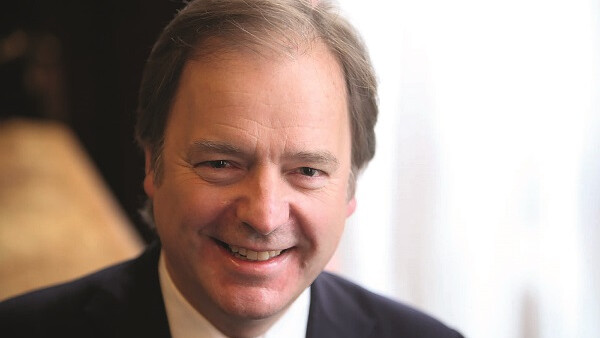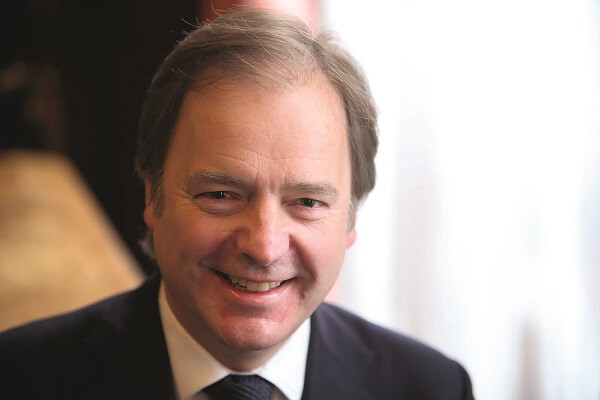Interview with the Rt. Hon Hugo Swire MP, Minister of State, Foreign and Commonwealth Office
LatAm INVESTOR caught up with Rt. Hon Hugo Swire MP, Minister of State, Foreign and Commonwealth Office, to find out how the government's Canning House Agenda has changed relations between Latin America and the UK...

In 2010 William Hague launched the ‘Canning Agenda’ in a bid to increase UK ties with Latin America; how successful has it been?
The Canning Agenda has been a great success for both the UK and Latin America. It’s no secret that over the first half of the twentieth Century, through both World Wars, the United Kingdom went from being one of Latin America’s largest trading partners, to largely the position we inherited in 2010. Through the Canning Agenda we have re-positioned ourselves as a respected and committed partner to Latin America on a range of issues, with real social, commercial and political benefits on both sides of the Atlantic.

The most obvious example of this re-engagement is our increased presence in the region: As Minister for our relations with the Americas, I have opened new Embassies in El Salvador, Haiti and Paraguay. We opened a Consulate General in Recife, Brazil, as part of our work to increase the number of diplomats in other established posts across Latin America. I can personally attest to the increase in ministerial visits, numbering over 80 during the course of this Government. Looking ahead we need to sustain this presence and high-level interaction on both sides.
British Universities have welcomed an increasing number of Latin American students to the UK, including nearly 9000 Science without Borders students from Brazil, and large numbers from Colombia and Mexico who both send more government sponsored students to the UK than to the US. The British Government is supporting this trend by working with private sector partners to fund an ever greater number of Chevening scholars from the region. The short term benefits for British universities are obvious, but the work being done to build lasting links between our researchers is equally important. That is why we’re also investing in science and technology links through our £63million Newton Fund.
Our efforts have been rewarded by levels of trade between the UK and Latin America that is increasing in volume and broadening in scope. From 2010 to 2013 UK exports to Latin America and the Caribbean grew by 25%, and of equal importance, with relationships built that will lead to a further increase in the years ahead.
The General Election later this year may bring a change of government in the UK; do you think that the Canning Agenda will have a lasting legacy that can survive political change at home?
Yes absolutely, though of course I hope there won’t be too much political change here!
The political, economic, cultural and social case for engaging with Latin America remains as strong today as it was four years ago. The links we have made across all sectors and at all levels are in the interests of both the UK and Latin America and we are only just starting to reap the mutual benefit. We must continue to engage whether that be nurturing the relationships built by the increased student numbers, pursuing the promising opportunities for trade and investment or working together to tackle global challenges such as climate change.
Our efforts have been recognised by political leaders across the region and they are bringing real benefits. However, it is important to remember that this is a long-term strategy: we are back, it is noticed and it is welcomed but our ambition has always been to realise the full potential of closer relationships with these emerging economies and growing world powers, which will take time.
Since the Agenda was launched growth in some Latin American countries has slowed, do you still believe that the region holds promise for British firms? What countries or sectors would you highlight as having particular potential?
Yes, the region still holds significant promise for British firms, not least because many countries still show signs of strong growth and an eagerness to do business with us. Actually, the end of the commodities boom has prompted politicians and businesses alike to think more deeply about economic growth, and more often than not the answer they’ve come to has been to open up. The formation of the Pacific Alliance demonstrates this commitment of a group of dynamic economies to openness and trade, we have introduced free trade agreements with Central America and the Andean region, and we’re still pushing hard for an ambitious EU-Mercosur deal.
"The political, economic, cultural and social case for engaging with Latin America remains as strong today as it was four years ago…"
Countries across the region have earmarked over $1trillion for developing infrastructure over the next five years. Mexico alone has ambitious plans for $570billion of investment. There are substantial opportunities in this sector for UK expertise; for example, Foster & Partners were part of the winning consortium to design the new MexicoCityInternationalAirport. Infrastructure investment is crucial in unlocking Latin America’s productivity and competitiveness, so British involvement presents longer term benefits as well.
Huge oil and gas discoveries off the coast of Brazil also offer great potential for UK companies with expertise in deep sea exploration. Many are already operating in this market and investing heavily. The mining sector in Chile presents major opportunities and we have already doubled our bilateral trade target with Colombia, with more to come if President Santos is successful in his efforts to secure peace after more than five decades of conflict.
It is right that we highlight these opportunities in the larger Latin economies but I wouldn’t neglect those in smaller countries with big ambitions – just a few weeks ago I opened Europe’s first ever ‘Invest in Paraguay’ event in London with over 200 UK businesses in attendance. And as this goes into print, the Falkland Islanders will embark upon hydrocarbon exploration that could see further opportunities for commercial partnerships with Latin America.
Britain has been accused of ‘losing touch’ with Latin America, especially as many of our European and Asian competitors have stepped up their involvement in the region. What are the UK’s competitive advantages when it comes to doing business in the region?
Look, the UK offers a powerful combination of a track record on delivering major projects as well as a real talent for innovation. So whether it’s expertise in preparing for major sporting events like Rio 2016 or providing cutting-edge consultancy services in areas like urban master-planning and sustainability for Latin America’s rapidly expanding metropolises, there is global demand for UK expertise in design, architecture and engineering. Combine this with increasing regional adoption of UK best practice in public private partnerships, and British firms are leading candidates to take advantage of the infrastructure opportunities. The UK also has a competitive advantage in the oil and gas sector, given our vast experience in the North Sea.

Britain is seen as a source of high-quality goods and services. This supports several sectors – for example we are seeing increased interest in UK vehicles and retail, especially luxury goods: last year I helped to launch of LUSH Cosmetics in Mexico City, a company that only turns twenty next year, having started life in the South West of England, not far from my constituency We are also world leaders in education: whether it’s Brazil’s Science Without Borders programme or Peru’s ambition to become bilingual (on which we’ve just signed an MoU), the UK’s world-class universities and wider education sector continue to be one of the first ports of call as the region seeks to develop its human capital.
Some British firms seem to prefer focusing on Asia or Africa than Latin America; what can the government do to revive UK plc’s interest in the region and help them succeed there?
Supporting British firms’ prospects overseas has been an important part of this Government’s efforts to drive up jobs and growth at home in the UK. This has meant maximising British companies’ chances of winning new contracts in the here and now, wherever they are, as well as striving to create the right business environment for British businesses to thrive overseas in the long term. A 25% increase in UK exports to Latin America and the Caribbean since William Hague’s Canning House speech suggests we’ve done a good job in the region so far.
And it’s important not to forget the work we are doing in the UK to encourage UK-Latin American commercial partnerships, not only to foster increasing numbers of British companies in Latin America, but to encourage firms from across Latin America to enter our market, as a launchpad to Europe and given London’s status as a global finance hub. Over the last year or so, we’ve helped to organise events promoting investment opportunities and commercial ties with Peru, Colombia, Paraguay, Chile and regional groupings SICA and the Pacific Alliance.